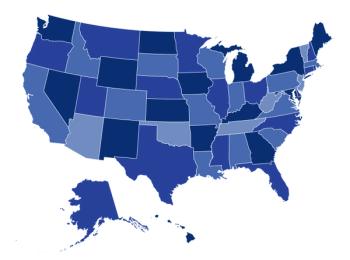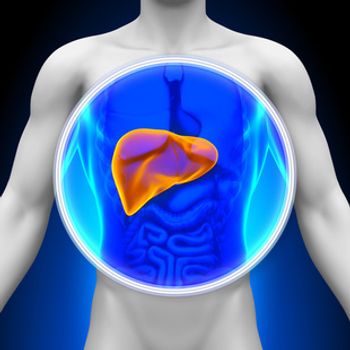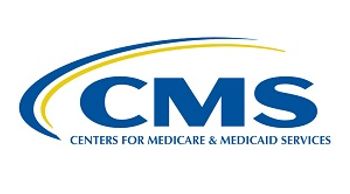
A report from the Urban Institute examined changes in Affordable Care Act (ACA) marketplace rating regions from 2017 to 2019.
Allison is Associate Editorial Director for The American Journal of Managed Care® (AJMC®) and The Center for Biosimilars®. She joined AJMC® in 2017. She produces and oversees written, video, and podcast content across several disease states and issues surrounding value-based care and health policy.
She has an MPA from New York University. You can connect with Allison on LinkedIn.

A report from the Urban Institute examined changes in Affordable Care Act (ACA) marketplace rating regions from 2017 to 2019.

OnabotulinumtoxinA (Botox) showed a sustained reduction in headache-day frequency and significant improvement in quality-of-life measures in patients with chronic migraine followed for 2 years, according to a recent study looking at real-world effects.

America’s Health Insurance Plans (AHIP) and 16 other organizations sent recommendations to Congress this week that they said will protect Americans from surprise medical bills.

Pain catastrophizing does not seem to be associated with chronic migraine in children, according to a recent study.

Eight states are participating in a project from the Center for Health Care Strategies (CHCS) that aims to break down the silos and the barriers that exist among different agencies and better connect Medicaid to early childhood programs.

The fungal drug amphotericin, which was discovered in 1953, could possibly help patients with cystic fibrosis fight chronic bacterial lung infections if results from an early study are validated in humans, researchers said Wednesday.

With discussion and debate happening for months in Washington, DC, over drug pricing and the role of pharmacy benefit managers (PBMs), the Institute for Clinical and Economic Review (ICER) published a white paper this week that analyzes 3 possible alternatives to the pharmaceutical rebate system fostered by PBMs.

The president has released his budget for fiscal year (FY) 2020, which calls for converting Medicaid to a system of block grants and requiring all able-bodied Medicaid recipients to hold a job or perform community service. The $87.1 billion allocated to HHS, a 12% cut, would include increases to federal HIV funding, but drops in global funding, as well as cuts to the National Institutes of Health (NIH).

A longitudinal 5-year observational study to examine functional and structural cerebral changes in adult-onset myotonic dystrophies found some differences between the 2 types of this incurable genetic disorder and said that additional brain studies are needed in light of upcoming treatment trials for this rare disease.

The study illuminates how the weight loss, reduction in fatty liver disease, and a decreased risk for cardiovascular disease happens in patients taking SGLT2 inhibitors.

Patients with migraine headaches may have a risk of also having dry eye disease (DED).

The name of the healthcare offspring of Amazon, Berkshire Hathaway, and JPMorgan Chase is finally here.

An analysis of exchange premiums finds that older adults with incomes just above the premium subsidy cutoff (400% of poverty), particularly in rural areas where premiums are highest, have the most severe affordability challenges.

Another study dispelling concerns about links between the measles, mumps, rubella (MMR) vaccine to autism has been released, this time with additional focus about subgroups of children.

Organizations and agencies marked Rare Disease Day this week. Here are 5 things to know about rare disease.

How to improve patient-reported measurement in oncology valued-based care is the focus of a new report from The National Pharmaceutical Council and Discern Health.

Hospitals nationwide continued to snap up medical practices, according to updated figures about acquisition trends and the impact on physician employment.

Researchers are encouraged by a set of peanut allergy immunotherapy data released Sunday at the 2019 American Academy of Allergy, Asthma & Immunology Annual Meeting, but they said that more discoveries are needed to understand which treatment might be best suited for patients.

Some children treated with egg oral immunotherapy (OIT) are likely to continue eating and tolerating egg 5 years after treatment, according to research that may someday lead to the development of biomarkers to predict who will respond to OIT. The research was presented at the 2019 Annual Meeting of the American Academy of Allergy, Asthma & Immunology.

Three studies presented Saturday at the American Academy of Allergy, Asthma and Immunology 2019 Annual Meeting, held February 22-25 in San Francisco, California, discussed different topics related to hereditary angioedema and treatment with subcutaneous injection of C1-esterase inhibitor (C1-INH).

Two abstracts presented Saturday at the American Academy of Allergy, Asthma & Immunology 2019 Annual Meeting, held February 22-25 in San Francisco, California, covered various links among economics, asthma control, and medication use.

Data about who is affected by sesame allergy, the ninth allergen in the United States, were released in an effort to convince the FDA to label it as a major food allergen.

A case series discusses how a liver biopsy may prove instrumental in determining if ruxolitinib therapy should be discontinued or continued in patients with myelofibrosis (MF) and polycythemia vera (PV) experiencing liver damage.

Despite the finding that a phase 3 trial of an epicutaneous immunotherapy therapy for peanut allergy did not achieve the lower end of an efficacy end point, it may still represent a viable option for children with peanut allergy, considering the unpredictability of these severe and sometimes fatal reactions.

The Affordable Care Act (ACA) was associated with expanded insurance coverage and improvements in access to care for women of reproductive age, particularly for those with lower incomes.

Researchers examined the medical costs for patients with a rare subset of chronic obstructive pulmonary disease (COPD) caused by a deficiency in alpha-1 antitrypsin receiving augmentation therapy.

National health spending will climb to 19.4% of gross domestic product in 2027, reaching $6 trillion, according to annual CMS estimates, with growth continued to be boosted by a greying population aging into Medicare.

An FDA program to prevent the inappropriate use of immediate-release fentanyl did not meet its goals of preventing off-label use or to patients who were not already using opioids, a JAMA study reported Tuesday.

Nonsteroidal anti-inflammatories (NSAIDs) have passed opioids as the most common drug group prescribed to injured workers in California, while payment data show that both dermatological medications and anticonvulsants now rank ahead of opioids in terms of total reimbursements, according to a report examining trends between 2009 and 2018.

The payment model will gather data that will be used to create a long-term model for patients not enrolled in studies or registries.

259 Prospect Plains Rd, Bldg H
Cranbury, NJ 08512
© 2025 MJH Life Sciences®
All rights reserved.
